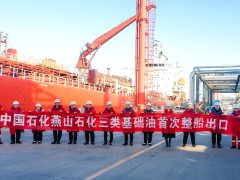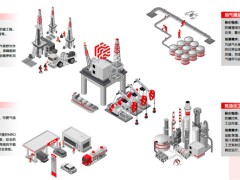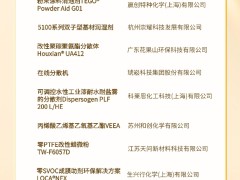据福布斯3月29日报道,页岩油气公司仅仅通过大量开采石油就能说服投资者掏腰包的日子已经一去不复返了。如今,一群不同的、更为保守的投资者在页岩行业拥有着影响力,他们要求的不是令人瞩目的石油产量数据,而是稳定的股东回报、积极的自由现金流和更小的环境影响。
毕马威会计师事务所(KPMG)全球能源主管Regina Mayor在接受采访时表示:“坚守页岩行业的投资者是稳定的,他们希望该板块的投资和开发更加谨慎,资产投资需要有可预见性,只关注产量增长的投资者们已经走了。”
尽管美国成为了世界上最大的石油生产国,但美国页岩油行业还是疏远了推动其产量惊人增长的投资者。德勤会计师事务所(Deloitte)去年的一项研究显示,2010年至2020年,石油行业的净自由现金流为负,为3000亿美元,超过埃克森美孚(Exxon Mobil)的年收入。幻想破灭的风险投资公司和其他寻求高增长的基金早在疫情爆发前就已经退出了该行业,但病毒引发的石油暴跌加速了它们的撤退。
页岩公司现在已经将注意力转移到剩下的这些投资者上。
研究分析公司IHS Markit的副总裁拉乌尔·勒布朗(Raoul LeBlanc)在接受采访时表示:“他们仍然背负着堆积如山的债务,有着糟糕的业绩。因此,他们真正关注的是试图证明页岩板块是可以盈利的。”
到目前为止,该行业已表现出对这一目标的承诺。即使WTI油价恢复到疫情爆发前的每桶略高于60美元的水平,页岩生产商也选择节约现金,而不是将其用于新的生产。咨询公司Rystad Energy本月初的一份报告显示,今年新设备的总支出(资本支出或资本支出)将与2020年大致持平,而2020年是许多运营商大幅削减开支的一年。当前,尽管油价不断上涨,美国每周钻探新石油或天然气的钻机数量(衡量未来产量水平和现金支出意愿的常用指标)仍远低于疫情爆发前的水平。
这意味着将有更大比例的受益留给股东。从历史上看,页岩公司会将所有可自由支配的现金流重新投资到新的资本支出中,然后再借入额外资金进行再投资。但据IHS Markit的LeBlanc称,这种再投资率曾经高达现金流的110-130%,现在已经降至更为节俭的60-65%,甚至更低。
投资者不仅仅想要控制资本支出,他们还呼吁企业控制排放,减少甲烷燃烧等不良行为。化石燃料领域许多最大的投资机构现在已经采用了协议,对自己在化石燃料领域的持股情况进行仔细审查。
王佳晶 摘译自 福布斯
原文如下:
Shale Oil’s New Investors Want Discipline And A Smaller Environmental Footprint
Gone are the days when shale oil and gas companies could persuade investors to write checks by simply pumping lots of oil. These days a different and more conservative class of investor commands influence in the shale industry, demanding not head-turning oil production figures but consistent shareholder returns, positive free cash flow, and a smaller environmental footprint.
"The investor community that stuck with [the shale industry] is the steady ones, that want discipline, that want predictability,” said Regina Mayor, global head of energy at accounting firm KPMG, in an interview. “That's the investor base they are all pandering to now. The growth investors are gone.”
Despite turning America into the world’s top oil-producing country, the U.S. shale oil industry succeeded in alienating the investors who enabled its astounding growth. Between 2010 and 2020 the industry had negative net free cash flows of $300 billion, more than the annual revenue of Exxon Mobil, according to a study last year by accounting firm Deloitte. Disillusioned venture capital firms and other high-growth-seeking funds were already exiting the sector before the pandemic, but the virus-caused oil rout accelerated their retreat.
Shale firms have now shifted focus to holding on to the investors that remain.
“They still have a mountain of debt, they have a bad track record, and they know that everybody doesn't like them,” said Raoul LeBlanc, a vice president at IHS Markit, a research and analysis firm, in an interview. “So they're really focused on trying to show that shale can be profitable.”
So far, the industry has shown commitment to that goal. Even as WTI oil prices return to pre-pandemic levels of just above $60 per barrel, shale producers are choosing to conserve cash rather than spend it on new production. Total spending on new equipment (capital expenditure or capex) this year will be roughly the same as in 2020, a year when many operators made drastic cuts, according to a note by the consultancy Rystad Energy earlier this month. And despite rising oil prices, the weekly count of rigs drilling for new oil or gas in the U.S. — a common measure of future production levels and willingness to spend cash — is still well below before the pandemic.
This has meant a larger share of earnings is left over to hand back to shareholders. Historically shale companies have reinvested all of their discretionary cash flow back into new capital spending and then borrowed extra to reinvest on top of that. But now this reinvestment rate, once as high as 110-130% of cash flows, has now fallen to a far more frugal 60-65% or less, according to IHS Markit’s LeBlanc.
Investors don’t just want capital discipline; they are also clamoring for firms to reign in emissions and clean up bad practices such as methane flaring. Many of the largest institutional investors in the sector have now adopted protocols that require them to carefully scrutinize their holdings in fossil fuels.
免责声明:本网转载自其它媒体的文章,目的在于弘扬石化精神,传递更多石化信息,并不代表本网赞同其观点和对其真实性负责,在此我们谨向原作者和原媒体致以敬意。如果您认为本站文章侵犯了您的版权,请与我们联系,我们将第一时间删除。







